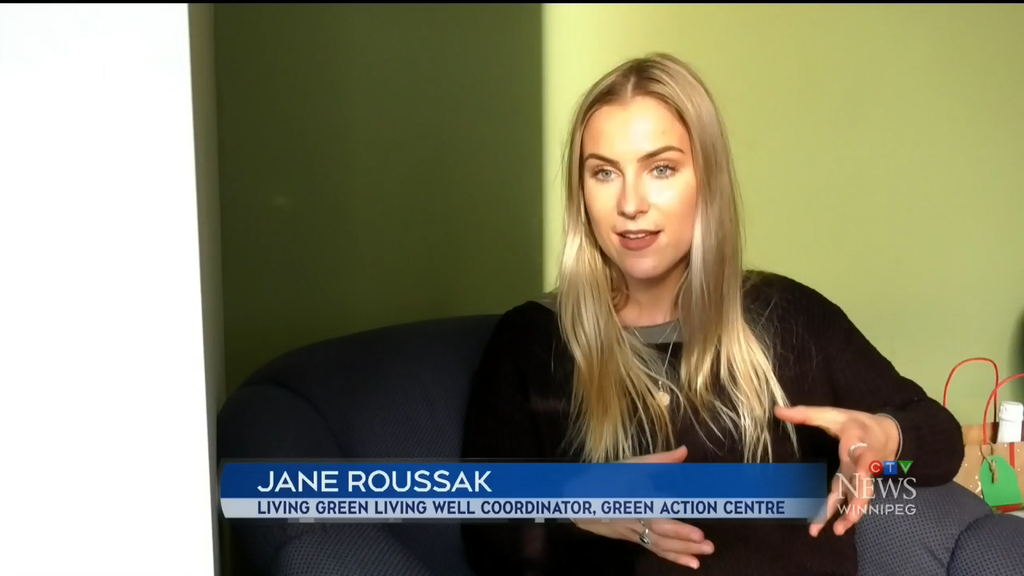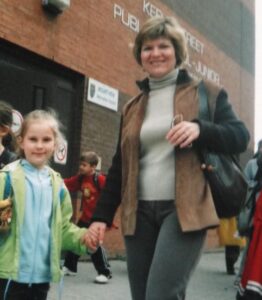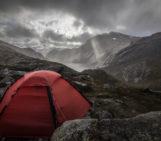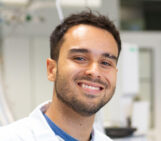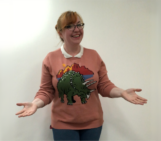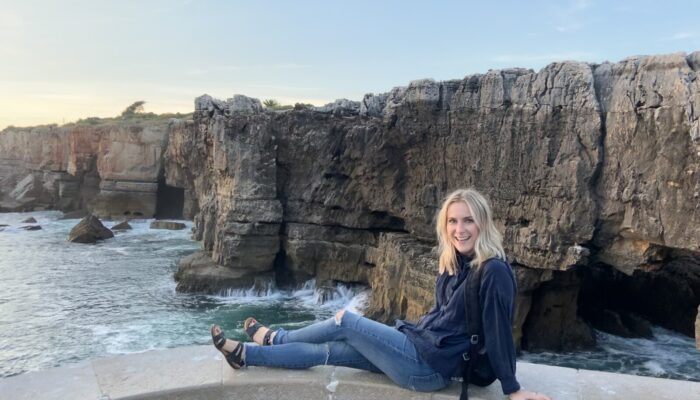
‘What I wish someone told me early in my career’ is a new Geolog series that aims to provide valuable insights and guidance to early-career professionals within the European Geosciences Union (EGU) community. Each month, I will interview a staff member of EGU to share their personal career journey, experiences, challenges faced, and the tips they wish they had received earlier in their careers. This month, I am having a chat with our Events Manager, Jane Roussak (she/her). Jane Roussak joined EGU in 2022 as the Events Co-ordinator and has been promoted to Events Manager this year, overseeing EGU’s events planning as well as the General Assembly’s ever since. Let’s get to know her!
Hello Jane and thank you for joining me today. To start, what inspired you to pursue a career in Geoscientific Event Management and how did your journey lead you to your current role at EGU?
From my childhood summers spent at my grandma’s dacha in rural Russia, I’ve always had a deep fascination with nature. This passion carried through to my studies at the University of Winnipeg, Canada, where I earned a BSc in Environmental Sciences & Geography. My focus was on understanding earth’s systems, resource use and extraction, and climate change prediction and mitigation. Learning about these critical issues fuelled my drive to raise awareness and contribute to solutions, which led me to a Program Coordinator role with a local NGO. There, I spearheaded waste reduction education and initiatives and became involved with Manitoba’s Climate Action Team. Despite significant growth in this dynamic role, I found myself battling climate anxiety and burnout, exacerbated by the onset of Covid-19 in 2020. So when my partner had an opportunity to study in Germany, it felt like the right moment to make the move and pursue our dream of living in Europe.
The truth is, you never know where your degree or career might take you—especially when you make the bold choice to move continents in the height of a pandemic!
Fast forward to today, with over 2.5 years of experience at EGU, I’m thrilled to have direct access to the latest geoscientific research while also taking some space for my own well-being when it comes to the heavy-hitting subjects requiring systemic change. Looking back, I could never have imagined that coordinating blood drives in school, organising fundraisers in wellness and environmental initiatives, and running plastic-reduction campaigns would lead me to where I am now. If you had told a young(er) Jane that she’d be living in Munich, Germany, organising Europe’s largest geoscientific conference, traveling for work, and building a global network of remarkable geoscientists, she wouldn’t have believed it! The truth is, you never know where your degree or career might take you—especially when you make the bold choice to move continents in the height of a pandemic!
How have the diverse skills and experiences from your early jobs outside of geosciences unexpectedly enriched and inspired your current work in the field?
I spent the majority of my life in Canada, where it’s common for students as young as 16 to hold part-time jobs. I embraced this opportunity fully, taking on roles such as retail associate and supervisor in the tea, fashion, and natural wellness industries, as well as working as a barista, waitress, yoga studio assistant, and actress in both small-scale productions and feature film background work. Earning some extra money allowed me to explore the world and its natural wonders, deepening my passion for geoscience. Yet, I never anticipated that these “side hustles” would profoundly shape my professional journey, equipping me with transferable skills that I continue to use today. From engaging with people of all ages and backgrounds to managing and coaching small teams, and tracking key performance indicators (KPIs), it’s amazing how much I learned beyond the classroom!
Can you share a pivotal moment or challenge you encountered early in your career, and how did you navigate through it?
Fresh out of university and eager to start my career, I quickly encountered my first major hurdle: finding a job! It’s a tricky cycle to break—gaining relevant work experience when even entry-level roles demand 3+ years of it. After several interviews, I realised that while I was great at selling products, I hadn’t yet mastered the art of selling myself. The key was setting aside my modesty and learning to confidently showcase what I bring to the table, emphasising transferable skills from my other experiences, and staying persistent.
Throughout your career, how have mentorship and networking played a role in your professional development, and what advice would you give to early-career professionals seeking mentorship opportunities?
I’ve been fortunate to learn from a number of strong female role models throughout my life. From my own mother to women in leadership positions at previous jobs, and of course, the many incredible colleagues and volunteers at EGU; all of whom have helped shape my outlook on what it means to be a woman in science and in the workforce. I’m inspired by those who choose to redefine the boundaries rather than shrink to fit within them. I deeply admire women who uplift one another and effortlessly blend leadership with compassion—a quality long dismissed in professional settings, especially in positions of power, yet one that, in my experience, only enhances effective leadership.
My advice for early-career scientists seeking mentorship opportunities is to take the initiative and start those conversations without hesitation. It can be intimidating to approach someone whose work you admire, but connecting over shared interests, asking thoughtful questions, and offering sincere compliments can pave the way for a new collaboration. Even if the outcome isn’t what you hoped for, you’ve broadened your network, and they might remember you when future opportunities arise.
Considering the evolving landscape of the geosciences, what skills or competencies do you believe are essential for early-career professionals to cultivate for long-term success?
As scientists, many of us develop “science tunnel vision,” fixating on research and academia. However, in my experience, it’s just as important to step outside the library and laboratory to cultivate social competence. I’m thinking of my grade 7 science fair project, where I meticulously filled the poster with details but overlooked the fact that the majority of the grade hinged on the oral presentation. Effective communication and understanding your audience are crucial—not just for conveying your research but also for networking and discovering new opportunities. I encourage geoscientists, especially early-career researchers, to build confidence in social interactions, public speaking, and digital communication. These skills are vital for connecting with others and succeeding in any field.
My advice for someone facing career uncertainty is to follow your interests and consider what lights you up, how you like to spend your time, what you are good at, and how you can be of service to others. In staying true to yourself, the rest will work itself out.
Reflecting on your career trajectory, what are some lessons you’ve learned along the way that you wish you had known earlier?
Kids are constantly bombarded with the question “Who do you want to be when you grow up?”. While a handful of people may already know at a very young age, for many of us, this question plagues us into adulthood. One of the biggest lessons throughout my career trajectory so far has been to remain curious and embrace the journey of exploration. As the world evolves, it’s only natural that we should evolve with it. While some might call it trial and error, I see it as a learning experience that guides you towards discovering what you do and don’t want.
My advice for someone facing career uncertainty is to follow your interests and consider the following: what lights you up, how you like to spend your time, what you are good at, and how you can be of service to others. In staying true to yourself, the rest will work itself out.

